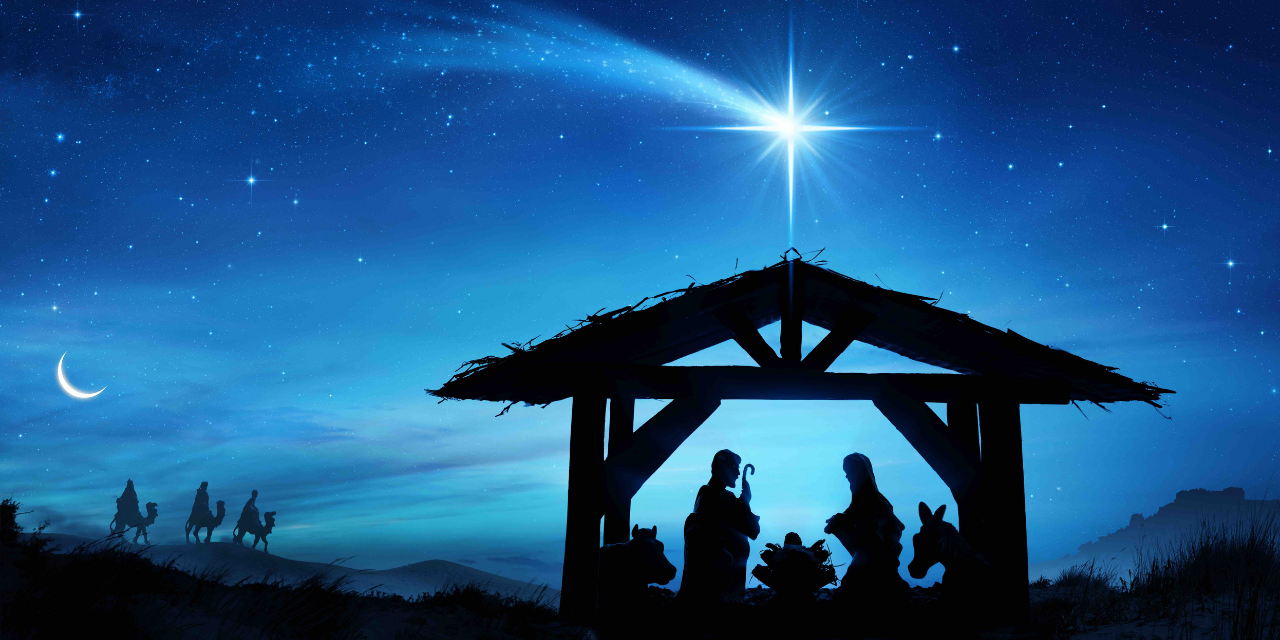It’s the end of yet another year, another year that, for most of us, probably felt more like two years in one. Between state and federal health mandates, government growth and overreach, legal battles over important moral issues of the day, secular attempts to redefine truth, and a growing sense that we share less and less in common with our fellow Americans, there is an ever-present feeling of weariness. The cultural battles of the day seem to loom on every side, tempting us to despair — but Jesus.
In one of the most well-known and beloved of Christmas carols, we are reminded of the biblical story of hope, a promise of redemption, and the triumph of good over evil.
The Christmas hymn “O Holy Night” was written in 1847 by the French poet Placide Cappea. The poem was set to music by composer Adolphe Adam. It was first sung at a small midnight mass on Christmas Eve in 1847, just three weeks after it was composed.
John Sullivan Dwight, an American clergyman and musician, translated the French hymn into English in 1855. As a passionate abolitionist, Dwight especially connected with the third verse of the hymn because it addressed one of the most pressing cultural evils of his day — slavery.
“Truly He taught us to love one another;
His law is Love and His gospel is Peace;
Chains shall he break, for the slave is our brother,
And in His name all oppression shall cease,
Sweet hymns of joy in grateful Chorus raise we;
Let all within us praise His Holy name!”
The English version of this Christmas hymn grew in popularity in America during the Civil War, especially in the free states of the North.
Today, the world-renown Christmas carol offers hope to this fallen world.
The first and most well-known verse declares:
“O holy night, the stars are brightly shining,
It is the night of the dear Savior’s birth;
Long lay the world in sin and error pining,
‘Till He appeared and the soul felt its worth.
A thrill of hope the weary world rejoices,
For yonder breaks a new and glorious morn….”
The hymn accurately acknowledges the world as a place full of sin and suffering and then reminds the listener that all is not lost — because of Jesus.
Jesus changed the narrative. The world lay suffering, but Jesus came to save it — to save us.
It’s in Jesus’ birth that he declared the worth of humanity.
At that moment, the soul was revived, and hope was restored even to a weary world who rejoiced at the thrill of hope.
The first verse goes on to promise a new and glorious morning.
The second verse reminds us that “in all our trials He was born to be our friend.”
And the third verse declares that Jesus will break all chains, and through Him all oppression will end.
As Christians, we operate daily in a physical world that at best doesn’t know Jesus and at worst flatly rejects Him and tries to lead others astray. Just living out our faith is countercultural.
And though it may be tempting to grow weary, we are reminded that a new day is coming. Because of Jesus, we can live with the “thrill of hope” every single day of the year.
Jesus is our friend, and he cares for us. In Matthew 11:38, Jesus says, “Come to me, all you who are weary and burdened, and I will give you rest.”
This Christmas season, as we reflect on the birth of Jesus, let’s allow Him to give our weary spirits rest.
And as we find reprieve in Jesus, let us also find the thrill of hope.
God’s not done with this world yet! There’s still hope for redeeming culture and saving the lost.
There’s more work to be done, and God is calling and equipping all of us to join Him in that important work for His glory. Amen!
Resources:
Watch Celine Dion perform “O Holy Night”
Photo from Shutterstock.






